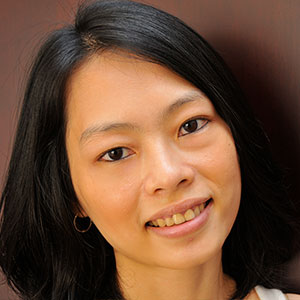In the past, I have written numerous times about the Association of Southeast Asian Nations (Asean). Asean is a regional organization that is supposed to be close to our hearts, as we are all Asean citizens. But most of the time, many are sceptical of its potential.
Two weeks ago, I had the opportunity to present a paper on Asean and civil society in a forum on “Promoting and Strengthening Asean Regional Integration and Asean Community 2015 and Beyond through Multi-Channel Dialogue” at the Institute of Diplomacy and Foreign Relations (IDFR).
The Forum was led by the IDFR’s Foreign Policy Study Group (FPSG), with Asean Foundation as joint organizer.
The intention of the Forum was to utilize its multi-channel avenues to enhance mutual understanding and cooperation between Asean member states for the benefit of its peoples and the region as a whole.
Former prime minister Tun Abdullah Haji Abdullah Badawi was kind enough to spend half-a-day at the forum after delivering his opening remarks. Halfway through his opening remarks, Badawi paused and he said something like this, "There’s kind of too many issues that Asean has to cover, isn’t it?"
The whole room burst out with laughter.
He had hit the nail on the head by saying that. Southeast Asia is a region with complex political systems with various challenges.
Today, in the final quarter of the 2015, we are still debating about how to realize a politically cohesive, economically integrated and socially responsible as well as a truly people-oriented and people-centred Asean.
Just last week, it was reported that Laos refuses to hosta meeting of civil society organizations (CSOs) in Southeast Asia on the sideline of the Asean Summit next year.
That is precisely the key challenge that the Asean faces.
Regionalism in Southeast Asia has been traditionally state-centric. It is a general view that Asean was born and in many ways remains a club of elites with a top-down approach.
Its origins was mainly due to a shared concern for regime survival among a group of Southeast Asian leaders facing internal challenges to their authority and demands for political openness. That means regional integration takes time and little space is given to civil society actors.
Asean celebrated its 48th anniversary this year, but its cooperation founded on the principles such as non-interference and sovereignty stays. The non-interference principle is being increasingly questioned through its expanded influence, as new challenges arising from globalization processes.
I shared similar sentiment with some scholars who view civil society as “our last best hope.”
The CSO has a unique role of expanding and promoting civic space by bringing us, the citizens, into the political sphere and mobilizing a range of popular voices to address the government on issues of interest. This is essential especially it it is in line with the main theme of Asean, that is a people-oriented or centered community.
Many might wonder, what can Asean do for them, or how could Aseanbe relevant to them, especially in their daily life.
Hence, the question remains: has regionalism in Southeast Asia made sufficient transition from being a “club of elites” to a “people’s Asean”?
“Regionalism from below” and participatory regionalism are just the beginning in Southeast Asia.
Yes, we have limited access to key policy-makers of Asean. But that does not mean there is nothing that we can do. Let us not forget our role, which is to disseminate information on the Asean community to others. – October 19, 2015.
* This is the personal opinion of the writer or publication and does not necessarily represent the views of The Malaysian Insider.


Comments
Please refrain from nicknames or comments of a racist, sexist, personal, vulgar or derogatory nature, or you may risk being blocked from commenting in our website. We encourage commenters to use their real names as their username. As comments are moderated, they may not appear immediately or even on the same day you posted them. We also reserve the right to delete off-topic comments